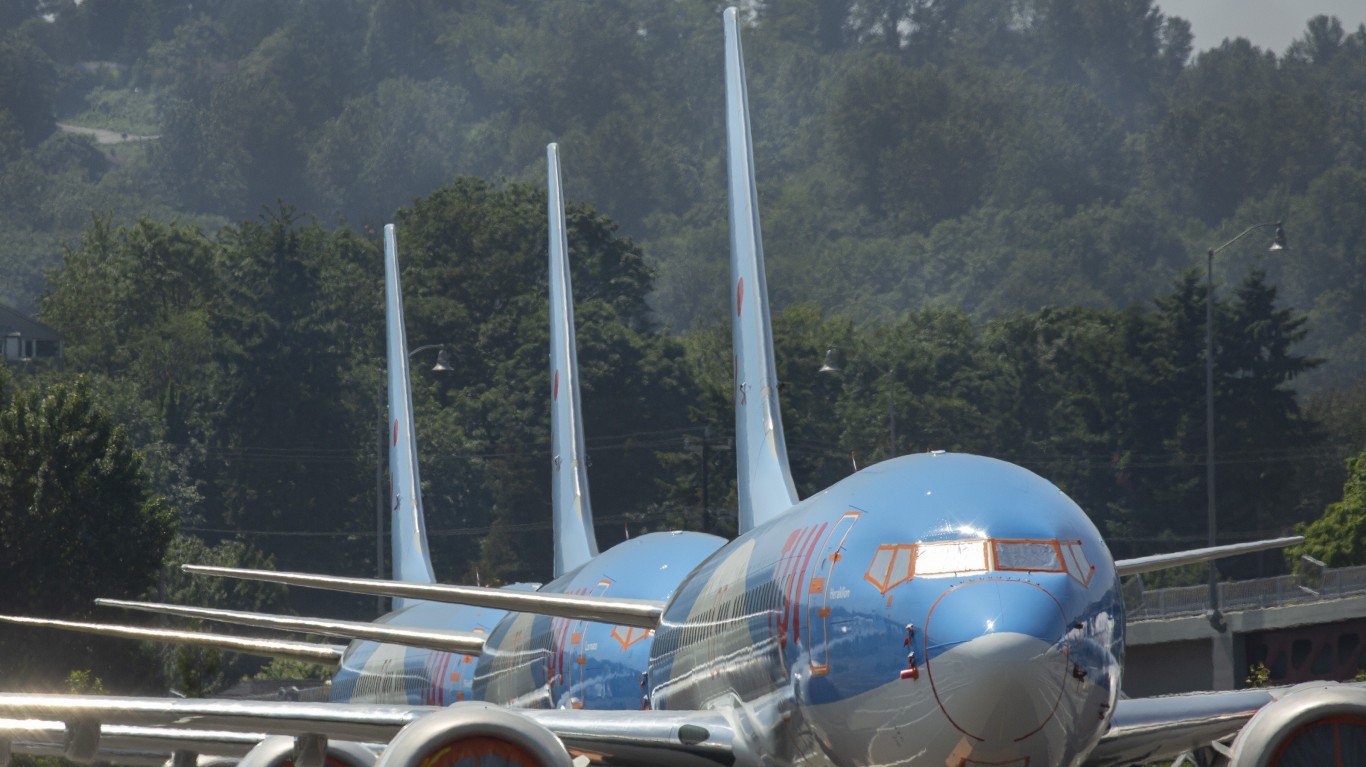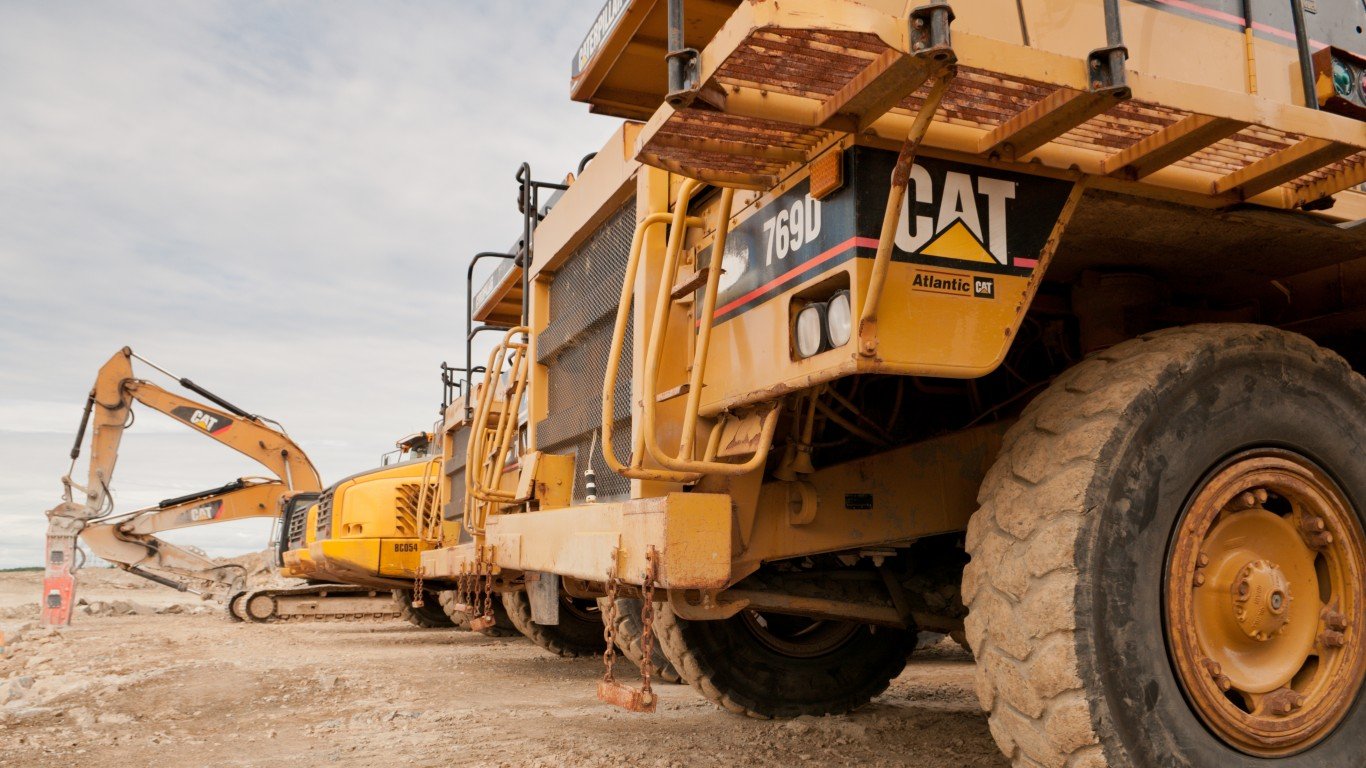

In an overbought and frothy stock market, sometimes the hardest thing for dedicated stock investors to do is to head to the sideline, and with good reason. While the longest peacetime expansion and the corresponding almost 11-year bull market have been outstanding for those who were in the whole time, there is always a chance there is another 5% upside before a blow-off top.
The question is, given all the current financial jitters and with the potential for the coronavirus to explode, what stocks make sense now? Using a somewhat contrarian stance, but acknowledging that it’s always darkest before the dawn, we found five top companies that are rated Buy at major firms, are very well known, and have been tossed into the Wall Street penalty box. Like in the National Hockey League, they will not be let out until the penalty time is served.
While not suitable for very conservative accounts, they all make sense for investors who have a long-term view on the markets and can wait out the current issues in an effort to see some big-time returns.
Boeing
This company has had a public relations nightmare due to the 737 Max issues. Boeing Co. (NYSE: BA) is the world’s leading aerospace company and the largest manufacturer of commercial jetliners and military aircraft combined. It is also one of the most valuable brands in the world.
The different segments in the company are Commercial Airplanes, Boeing Defense, Space & Security and Boeing Capital. The latter provides financial solutions facilitating sale and delivery of Boeing commercial and military aircraft, satellites and launch vehicles.
In 2018, Boeing and Embraer signed a nonbinding memorandum of understanding to create a new strategic partnership for commercial aviation. The new joint venture is valued at $4.75 billion, which values Boeing’s 80% share at $3.8 billion.
With the 737 Max expected to come back into service in the summer, it may still take a couple of months of safe air travel for nervous investors to enjoy the ride again.
Shareholders receive a 2.40% dividend. Jefferies has a $390 price objective on the shares, while the Wall Street consensus target price is $344. Boeing stock closed Thursday at $342.82 a share.
Exxon
This is a safer long-term play for conservative investors, and the energy giant is trading at stunning 10-year lows. Exxon Mobil Corp. (NYSE: XOM) is the world’s largest international integrated oil and gas company. It explores for and produces crude oil and natural gas in the United States, Canada, South America, Europe, Africa and elsewhere.
Exxon also manufactures and markets commodity petrochemicals, including olefins, aromatics, polyethylene and polypropylene plastics, and specialty products, and it transports and sells crude oil, natural gas and petroleum products. Note that Exxon has one of the highest paid American CEOs.
The company reported mixed fourth-quarter results that did have some positive trends, and while earnings came in slightly below estimates, revenues exceeded them. One issue that has kept some pressure on the shares is concerns that the long-standing dividend may be cut. Merrill Lynch doesn’t agree and noted this earlier this week:
Suggestions that Exxon’s dividend is at risk misunderstands a decade long strategy of investing at the low end of the cycle. Its sector leading balance sheet is considered strategic and stands best in class despite any borrowings to fund future growth. The company remains the only major with line of sight for a material expansion in cash/flow and dividend growth through the decade.
The company raised the dividend last year by a nickel per share to $0.87. That translates to a massive 5.71% dividend. The Merrill Lynch price objective is $100, while the consensus price target is just $74.10. Exxon Mobil stock closed at $60.93 on Thursday.
Norwegian Cruise Line
This stock has sold off over the coronavirus concerns, as a competitor’s ship is still quarantined. Norwegian Cruise Line Holdings Ltd. (NASDAQ: NCLH) is the world’s third-largest cruise company, and it owns and operates Norwegian Cruise Line, Oceania Cruises and Regent Seven Seas Cruises.
The company acquired Prestige Cruise Holdings, the parent company for Oceania and Regent Seven Seas Cruises, in 2014 to diversify into the premium and luxury segments of the market and expand its global footprint. Today, Norwegian has 25 ships across all three brands and offers itineraries to more than 510 destinations.
The company said recently that it could face a per-share earnings impact of 55 to 65 cents in fiscal 2020 if all operations are suspended in Asia through the end of April. While that has not come to pass and may be averted, the cruise line said there will be a material impact on the business due to suspended cruises in Chinese ports, cancellations in other parts of Asia and the impact on bookings, which the company said is determined by the length of time that an event influences travel.
Merrill Lynch remains positive on the company and recently noted its strong fundamentals should remain in place long after the coronavirus issues have faded from the headlines. Their $66 price objective is in line with $66.50 the consensus target. The shares were last seen trading at $53.43.
United Airlines
This company has found a way to shoot itself in the foot constantly over the years, but the issue this time is all the company’s routes into Asia. United Airlines Holdings Inc. (NYSE: UAL) is the holding company for United Airlines and United Express, which operate an average of 5,055 flights a day to 373 airports across six continents.
United’s key U.S. hubs include Chicago, Denver, Houston, Los Angeles, New York/Newark, San Francisco and Washington, D.C. The airline is a founding member of Star Alliance, which provides service to 193 countries via 27 member airlines.
In late January, United canceled 24 round-trip flights to Hong Kong, Beijing and Shanghai, citing a lack of customer demand due to coronavirus. Of all U.S. carriers, the company has some of the highest exposure to China and the Asia-Pacific region. Wall Street fears that would put a big dent in earnings.
Merrill Lynch remains positive on the long-term outlook and has set a $100 price target. The consensus target is higher at $109.59, and United Airlines stock ended Thursday at $80.99 a share.
Wynn Resorts
This top company’s issues stem from some of its top properties being located in China. Wynn Resorts Ltd. (NASDAQ: WYNN) operates Wynn Macau and Encore at Wynn Macau resort located in the People’s Republic of China.
The Macau resorts feature approximately 284,000 square feet of casino space, which offers 24-hour gaming and a range of games, with 458 table games and 708 slot machines, private gaming salons, sky casinos and a poker room. Its two luxury hotel towers have a total of 1,008 guest rooms and suites, as well as casual and fine dining in eight restaurants, about 57,000 square feet of retail shopping in stores and boutiques, around 31,000 square feet of space for lounges and meeting facilities, and the Rotunda show. Recreation and leisure facilities include two health clubs, spas, a salon and a pool.
The company also owns and operates the Wynn Las Vegas and Encore at Wynn Las Vegas resorts, with a total of 4,748 hotel rooms, suites, and villas; 232 table games; 1,866 slot machines; a race and sportsbook and poker room in approximately 186,000 square feet of casino gaming space, including a sky casino and private gaming salons.
One huge issue that has had Wall Street backing away is that Wynn has among the highest China exposure, as the company derived about 75% of total revenue from Macau over the past 12 months, according to estimates based on FactSet’s proprietary algorithm. With casinos in Macau being closed for two weeks, there will be some short-term earnings damage.
Shareholders receive a 3% dividend. The Deutsche Bank price target is $155. The consensus target is $148.94, and Wynn Resorts stock was last seen at $133.62 per share.
Longtime stock investors know that often analysts, strategists and financial talking head pundits can’t see the proverbial forest for the trees. There is no doubt the coronavirus will cause near-term damage for some of these stocks. The reality is that, like the SARS epidemic in 2003, it will sooner or later fade from the front pages and TV screens of the world. All these companies suffering a direct impact now eventually will return to form, and that’s why now is the time to add some shares.
Take This Retirement Quiz To Get Matched With An Advisor Now (Sponsored)
Are you ready for retirement? Planning for retirement can be overwhelming, that’s why it could be a good idea to speak to a fiduciary financial advisor about your goals today.
Start by taking this retirement quiz right here from SmartAsset that will match you with up to 3 financial advisors that serve your area and beyond in 5 minutes. Smart Asset is now matching over 50,000 people a month.
Click here now to get started.
Thank you for reading! Have some feedback for us?
Contact the 24/7 Wall St. editorial team.
 24/7 Wall St.
24/7 Wall St. 24/7 Wall St.
24/7 Wall St.


